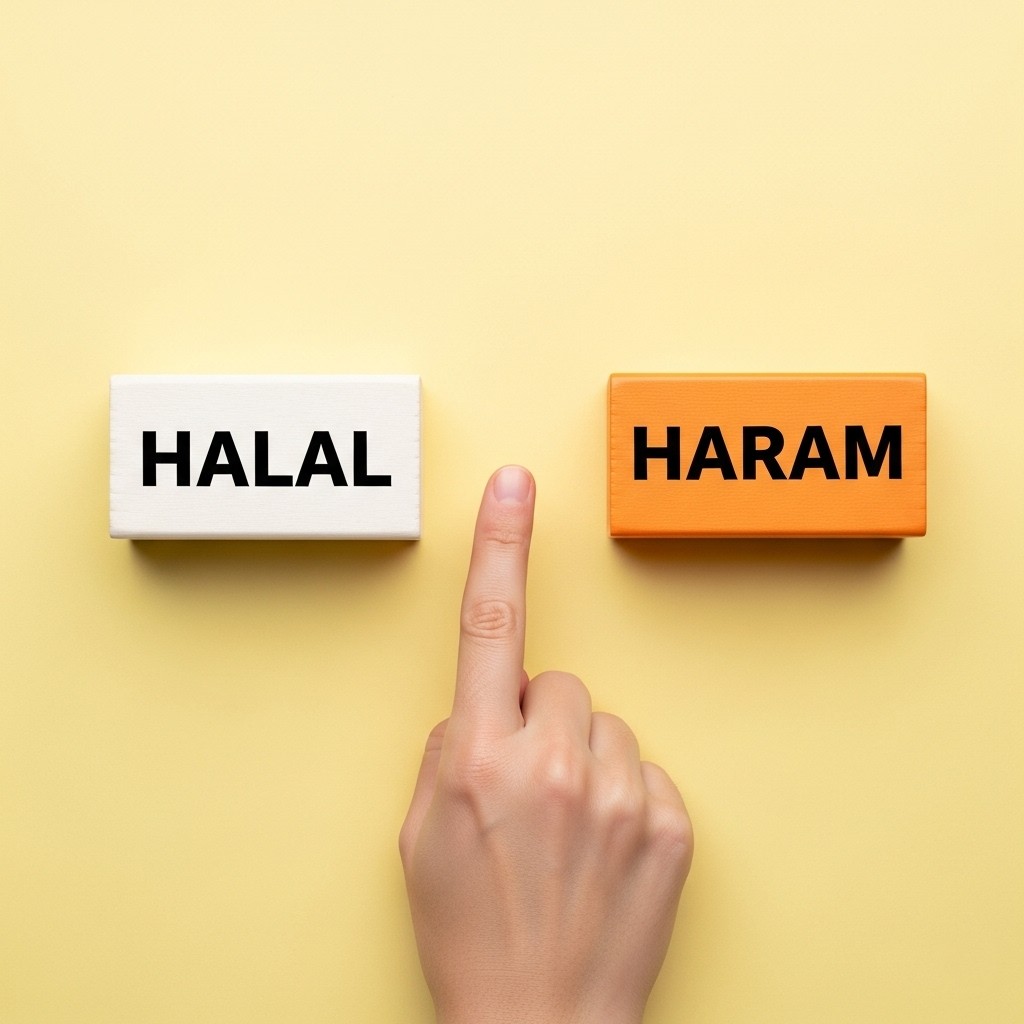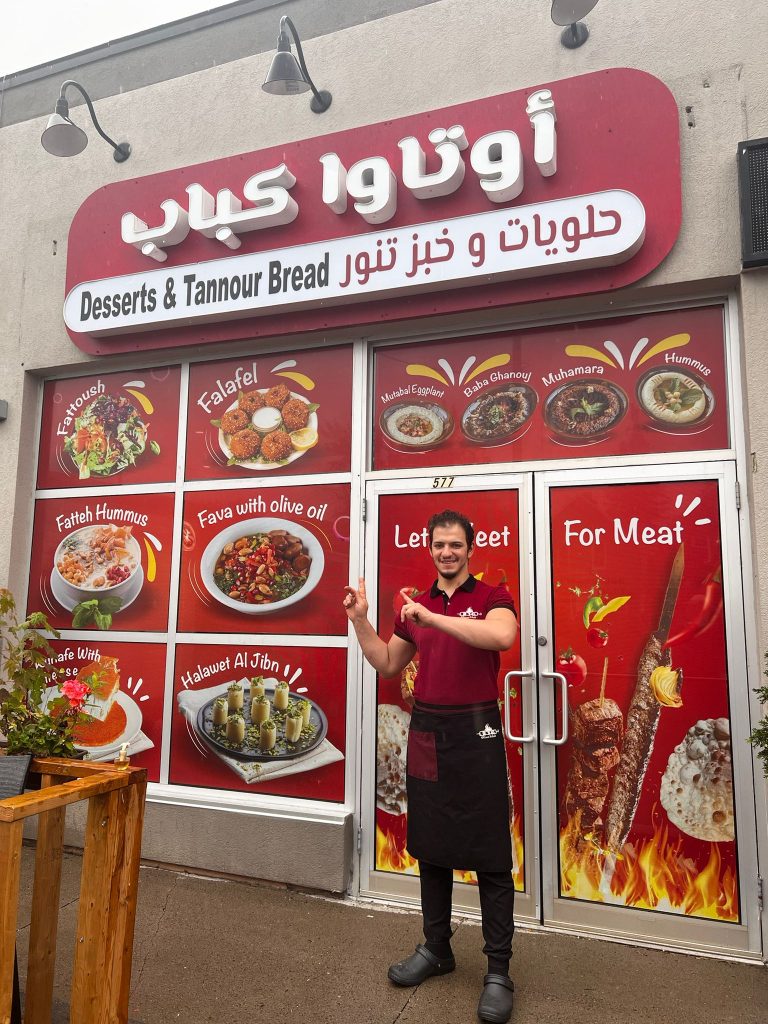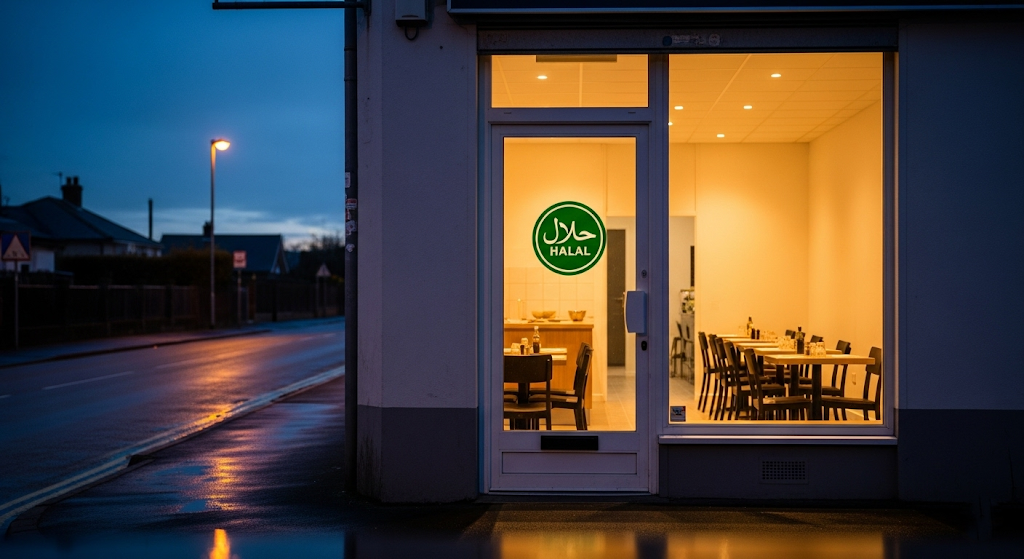Toronto Halal Bites Festival 2
📍 Nathan Phillips Square | May 16–18, 2025 | @halalbitesfestival As a halal foodie in the GTA,…

“Halal Certified” is a label given to food products or restaurants that have been approved by a recognized third-party certification body.
The world’s diverse food scene has seen a rapid increase in halal restaurants, driven by the country’s growing Muslim population and rising demand for ethically prepared meals. But as more restaurants label their food as “halal,” the need for clear, credible certification becomes more important than ever. Halal certification is more than just a label — it’s a commitment to transparency, trust, and religious compliance that can shape customer loyalty and influence restaurant reputation. In this article, we’ll explore how halal certification works in Canada, why it matters for restaurants, and what steps business owners need to take to earn and maintain it.
Before diving into certification, it’s important to understand what halal food really means, especially in the Canadian context.
Halal certification is an official process that verifies whether a restaurant’s food and practices comply with Islamic dietary laws. For Muslim consumers, this certification helps confirm that the food is not only free from pork and alcohol but also slaughtered and prepared according to specific religious guidelines. For restaurant owners, it’s more than a religious checkbox — it’s a mark of trust and integrity that speaks directly to a growing halal-conscious customer base.
Many restaurants advertise “halal” on their menus without going through proper certification. While this may satisfy some customers, others seek official documentation to ensure full compliance. Certified halal means that the restaurant has been inspected by a recognized authority, the supply chain has been verified, and the cooking process avoids cross-contamination with non-halal items.
To be officially halal certified, a restaurant must meet specific conditions. These include using halal-certified meat and ingredients, ensuring no alcohol is used in cooking or preparation, and maintaining separate equipment and utensils to avoid contamination. Certifying bodies may also inspect the supply chain, food storage, and kitchen practices to ensure consistency with Islamic principles.

Not necessarily. Many small or family-run halal restaurants operate without formal certification and rely on community reputation or verbal assurance. However, this can lead to confusion and mistrust, especially in cities with a high volume of halal-conscious diners. Certification adds an extra layer of transparency and helps customers feel confident in their dining choices.
Several recognized organizations in Canada provide halal certification to restaurants, each with its own standards, fees, and inspection processes. Choosing the right certifier depends on your restaurant’s needs, target audience, and the level of trust each organization holds in the community.
HMA is one of the most trusted halal certifiers in Canada. They are known for their strict inspection system, including surprise audits and full traceability of meat sources. Restaurants certified by HMA often gain strong credibility within the Muslim community.
ISNA is an older and widely recognized certifier in North America. Their process includes supplier verification and annual reviews. While not as strict as HMA, ISNA certification is accepted by many Muslims and institutions across Canada.
The Halal Advisory Group offers certification with a focus on food manufacturing and restaurant chains. Their process emphasizes global halal standards, and they have a strong presence in export-oriented businesses.
CHFCA provides halal certification primarily for meat producers and restaurants. Their guidelines are based on both religious compliance and alignment with Canadian food regulations.
| Certifier | Cost | International Recognition | Manual Slaughter | Surprise Audits | Community Trust |
|---|---|---|---|---|---|
| HMA | High | Medium–High | Yes (hand only) | Frequent & strict | Very High |
| ISNA | Medium | High | Allows mechanical | Rare | High |
| HAG | Low | Medium | Allows mechanical | Not standard | Moderate |
| CHFCA | Low | Medium | Allows mechanical | Not standard | Moderate |
For restaurants in Canada, halal certification is no longer optional — it’s a strategic advantage. With a growing Muslim population and increased awareness around food ethics, having a halal certificate builds confidence and opens new market opportunities. Here’s why it matters:

Muslim diners often seek out restaurants they can trust, especially when it comes to meat and preparation standards. A visible halal certificate provides peace of mind and shows that the restaurant respects religious values. In competitive areas, it can be the deciding factor for where a family chooses to dine.
Restaurants like Ottawa Kabab have gained loyal followings by being transparent about their halal practices and displaying their certification clearly.
Halal food isn’t just for Muslims. Many non-Muslim consumers associate halal with cleanliness, humane slaughter, and higher ingredient standards. Certification can help restaurants tap into this wider audience — including ethical eaters, tourists, and health-conscious diners — who actively search for halal-certified options online.
Getting certified sends a strong message: this business values transparency, cleanliness, and accountability. Whether you’re running a small takeout shop or a large dining establishment, halal certification is a mark of professionalism that boosts your brand reputation.
There’s a big difference between simply claiming “halal” and proving it. Customers are becoming more informed — they look for certificates, inspect supplier lists, and ask questions. Restaurants that say “halal” without certification may attract suspicion or lose trust over time. Meanwhile, certified businesses can proudly display proof and avoid potential backlash.
Halal certification in Canada follows a structured process that ensures your restaurant meets strict religious and operational standards. Whether you’re opening a new halal restaurant or seeking to certify an existing menu, understanding the steps involved can help you prepare and succeed.
The first step is selecting an organization authorized to issue halal certification. Popular options in Canada include HMA, ISNA, and CHFCA. Consider factors such as inspection rigor, community trust, cost, and processing time when choosing the right certifier for your business.
Most certifiers provide an online or downloadable application form. You’ll need to provide detailed information about your restaurant’s menu, ingredient sources, food preparation process, equipment used, and supplier documentation. Honesty and transparency are crucial at this stage.
Once your application is reviewed, an inspector will visit your restaurant to verify that everything aligns with halal requirements. This includes checking meat sources, cleanliness, storage, cooking processes, and even employee practices. Some certifiers may conduct surprise visits during the year.
If your restaurant passes the inspection, you will receive an official halal certificate, valid for a specific period (usually one year). You’ll also be granted permission to use the certifier’s logo on your menus, website, and storefront. This visual proof plays a huge role in attracting informed customers.
Halal certification isn’t a one-time task. Restaurants must maintain consistent practices and renew their certification annually. Some certifiers may require periodic audits or re-inspections to ensure ongoing compliance and prevent misuse of the halal label.
Do you own a restaurant or meat shop? Learn how to get halal certification in details.
While halal certification offers clear benefits, the process isn’t always easy. Many restaurant owners encounter challenges that can slow down or complicate their journey toward becoming fully certified. Understanding these obstacles in advance can help prepare for a smoother experience.
For small businesses or new restaurants, the cost of halal certification can be a barrier. Certification fees vary depending on the organization and the level of oversight required. Some certifiers also charge for periodic inspections or renewal applications. For restaurants operating on tight budgets, this may seem like an unnecessary expense — but it’s an investment in long-term credibility.

One of the biggest challenges is ensuring that all ingredients — especially meat and poultry — are sourced from halal-certified suppliers. Restaurants may need to change long-standing vendors or find new sources that meet halal standards. This can affect pricing, logistics, and even taste if substitutions are required.
Some customers may not understand what halal certification truly involves. Others may assume that any restaurant run by a Muslim is automatically halal — which isn’t always the case. Dealing with questions, concerns, or skepticism from the public can require clear communication and education, especially in multicultural cities.
Not all certifiers are treated equally by the public. Some organizations are seen as more reliable or strict, while others may have looser standards. Choosing the right certifier means balancing trust, cost, and recognition — and sometimes facing pressure from customers who only accept certain certificates.
Earning the trust of Muslim customers in Canada goes beyond just offering halal ingredients — it’s about clarity, transparency, and how the restaurant presents itself. While some diners prioritize official certification, others rely on community reputation or trust in the owners. Understanding this balance is key for restaurants that want to grow their halal audience.
Some Muslim customers are highly certification-conscious and will only eat at restaurants that can show proof of halal compliance. For them, a printed certificate from a trusted organization — like HMA or ISNA — is non-negotiable. Others, especially in smaller communities, may feel comfortable relying on the word of the restaurant owner, particularly if the owner is Muslim or known within the community.
However, consumer awareness is growing, especially among younger generations and newcomers. Many now prefer visible, verifiable proof over verbal claims — and may even avoid uncertified restaurants altogether.
Having a halal certificate is only effective if customers can see it. That’s why restaurants should prominently display it in key places:
Digital-savvy customers often search for “halal certified near me” or look for halal tags on Instagram. Failing to showcase certification means missing out on a valuable trust signal that could drive foot traffic and online orders.
In today’s connected world, Muslim consumers are more informed — and more vocal — than ever. When a restaurant claims to serve halal food but cannot show any official proof, it can spark serious backlash. Customers may share their concerns in Google reviews, Facebook groups, or halal-focused directories, warning others about the lack of transparency.
Even if the food is technically halal, the absence of certification can lead to lost trust — especially if competitors nearby are proudly certified. For restaurants, this creates a reputational risk that’s hard to recover from. It’s always better to be upfront, even if you’re still in the process of becoming certified.
For restaurants in Canada, halal certification is more than a religious requirement — it’s a signal of integrity, professionalism, and respect for a growing customer base. As Muslim diners increasingly seek transparency and verified sourcing, certification becomes a key factor in earning their trust.
Whether you’re launching a new halal concept or upgrading your existing operations, taking the step toward official certification positions your restaurant as a trusted, responsible, and community-focused brand. It also opens the door to broader marketing opportunities, stronger online visibility, and long-term customer loyalty.
If your restaurant claims to serve halal food, make sure you’re backing it up — not just with words, but with verified actions.